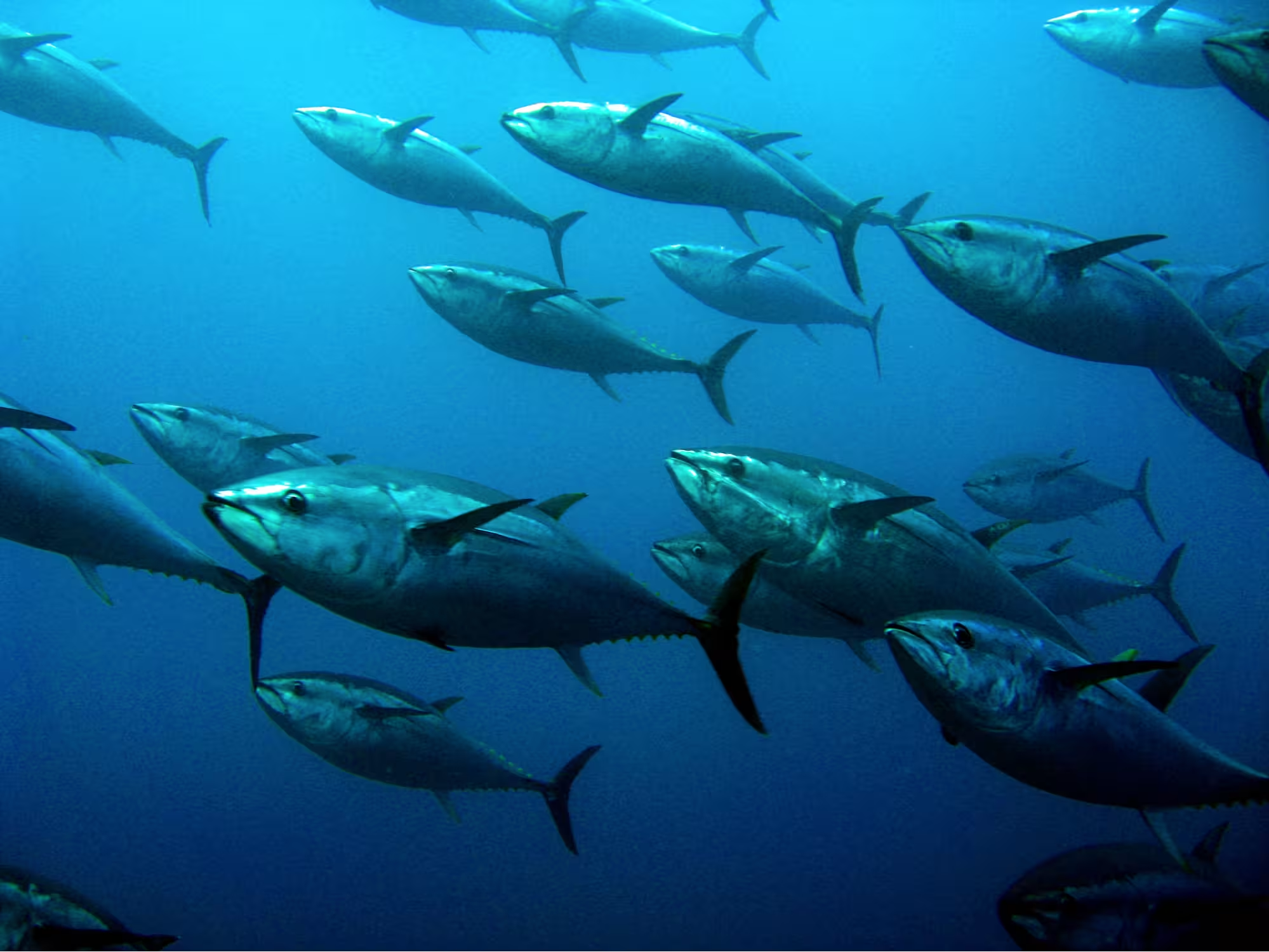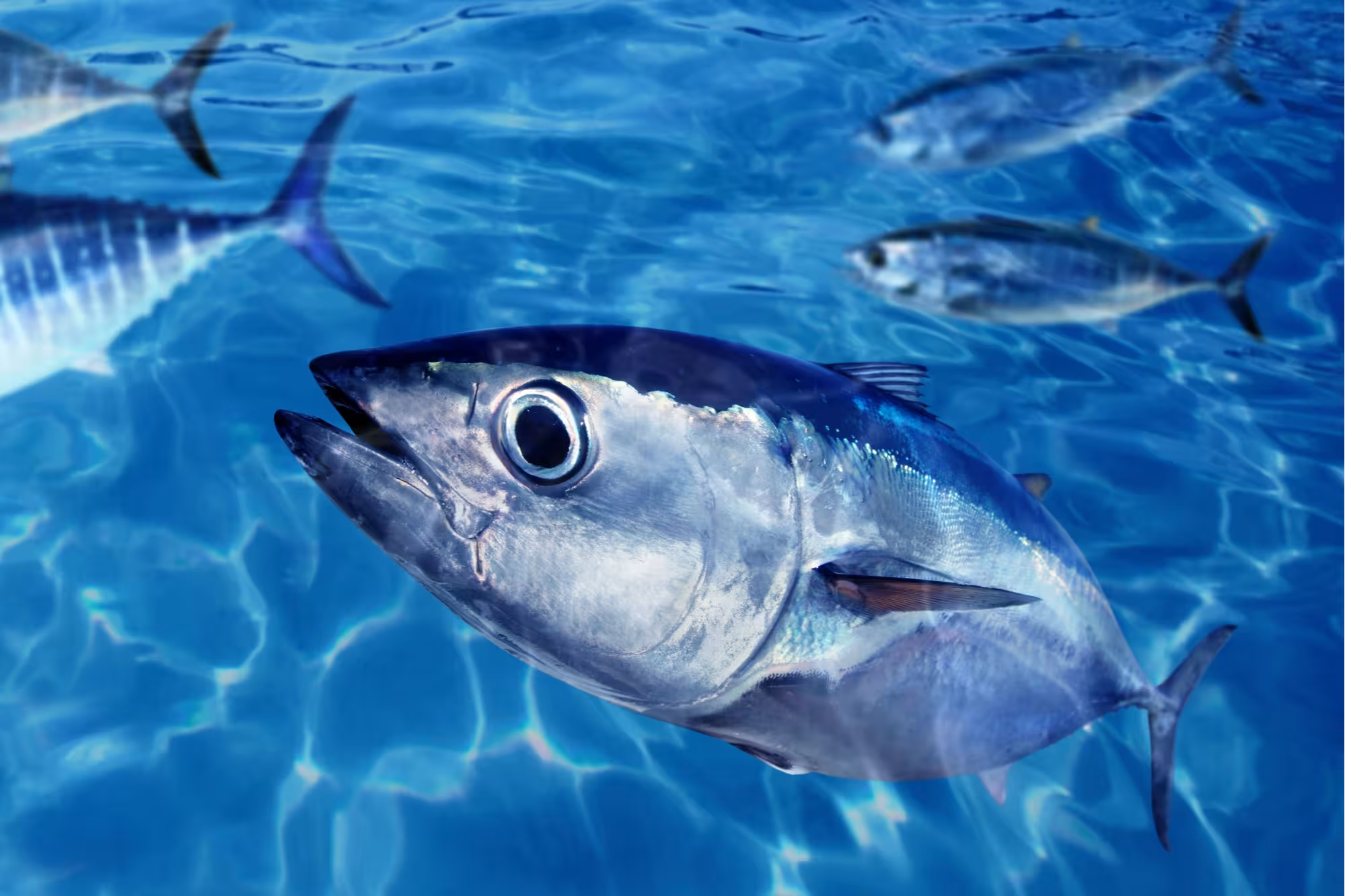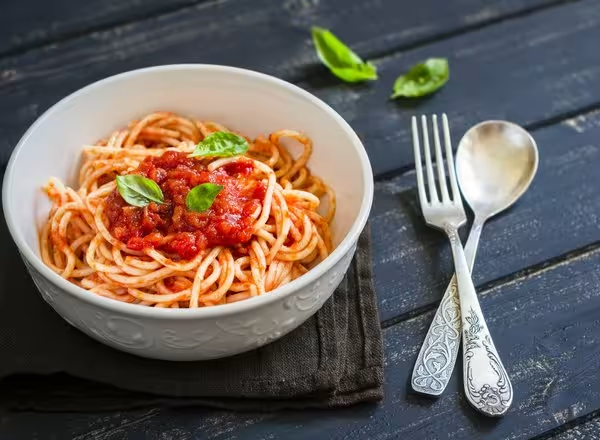




Why a pescetarian diet isn't as good for you (or the planet) as you might think.

More and more people all around the world are choosing to give up beef, chicken, and pork in the name of health and environmentalism... only to substitute with large amounts of fish. Though well-intentioned, a pescatarian diet might not be as beneficial as you think.
What is a pescatarian?
A pescatarian (or pescetarian, spelled with an “e”) is someone who eats fish but doesn’t eat land animals or birds. Different from a vegetarian diet, which excludes the meat of any animal, a pescatarian diet includes animals like fish, mollusks, crabs, lobsters, and shrimp.
What do pescatarians eat?
Pescatarians eat everything included in a vegetarian diet—fruits, vegetables, grains, legumes, eggs, meat substitutes, and dairy—with the addition of sea animals.
Along with fish—like salmon, tuna, and halibut—pescatarians also eat shellfish. There are three kinds of shellfish: mollusks (like clams, oysters, mussels, octopus, and squid); crustaceans (shrimps, crab, and lobsters); and echinoderms (sea cucumbers and sea urchins). A pescatarian diet could include all of the above.
Do pescatarians eat eggs?
Yes, pescatarians do eat eggs, along with other non-meat animal products like milk, cheese, and yogurt.
Why do people choose a pescatarian diet?
People may choose a pescatarian diet for a few different reasons—including perceived health benefits, concern for the environment, and consideration for animal welfare. While these concerns are admirable (and reducing overall meat consumption is great for all of the above reasons!), decreasing meat intake at the expense of fish can end up doing more harm than good.
Pescetarianism Part 2

Problems with the pescatarian diet
Health risks
While fish is often touted as a superfood, it does come with its share of health risks—specifically, mercury and microplastics.
Mercury exposure
While eliminating red and processed meat is proven to reduce your risk of heart disease, replacing red meat with fish comes with its own serious health concerns. Mercury, a common toxin absorbed by fish, can be dangerous to humans who consume a large amount of seafood. Many casual fish consumers don’t realize just how much mercury they’re absorbing by eating cod, tuna, and swordfish.
Pollution has increased the amount of mercury in our aquatic systems, which in turn gets absorbed by the fish. According to the World Health Organization (WHO), human activity—including coal burning, mining, and industrial processes—is the main driver of mercury releases. The WHO lists mercury among the top ten chemicals of major public health concern, and identifies that people are mainly exposed when they eat fish or shellfish containing the organic compound methylmercury.
When we eat fish, we absorb this mercury into our own bodies. A large body of evidence suggests that many types of fish contain more than the recommended limit, and that higher fish intake is linked to higher mercury levels. Even eating a small amount of fish can seriously impact the mercury levels in your blood.
The earliest symptoms of mercury poisoning include personality change, tremors, anxiety, memory problems, and depression. More serious symptoms include muscle weakness, nausea, difficulty breathing, reduced motor skills, and changes in vision and hearing.
Microplastics
But mercury isn’t the only toxicity risk present in seafood. There’s another serious concern: microplastics. These tiny fibers of plastic, which occur when larger plastic items like shopping bags break down, are now widespread throughout our oceans. They take hundreds or thousands of years to decompose. And what’s even more concerning is that sea animals are inadvertently ingesting them—meaning they’re also being passed on to humans. When fish eat microplastics, they can move into the animals’ muscle tissue, the part of fish that humans typically eat.
A 2020 study found that humans are consuming microplastic as a result of eating fish and shellfish, and that this presents a major health concern. Eating microplastics has been linked to toxicity in vitro to lung cells, liver, and brain cells, as well as dermal exposure, airway and interstitial lung diseases. Not only is our massive pollution crisis harming animals and ecosystems; it’s harming humans as well.
Is pescatarian healthier than vegan?
There’s a common misconception that a pescatarian diet is healthier than a fully vegan diet, mainly due to concern about not consuming enough omega-3 fatty acids. Omega-3s are essential for a healthy heart and brain, as well as important for prenatal development. Some of the benefits of incorporating omega-3 fatty acids into your diet include lower blood pressure, reduced chance of stroke or heart attack, and the slowed development of plaque buildup in arteries.
We're often taught that omega-3 fatty acids mostly come from tuna, salmon, and shellfish—but that simply isn't the case. Plant-based omega fats come from a wider range of foods, lots of which offer additional nutrients that fish don't! You can find plant-based omega acids in:
- Chia seeds
- Brussels sprouts
- Algal oil
- Hemp seeds
- Flax seeds
- Walnuts
- Perilla oil
Incorporating any of these omega-3-rich foods into your diet is simple. Hemp seeds, chia seeds, or flax seeds are easy to add to smoothies, while walnuts and brussels sprouts make tasty additions to any salad.
A barren coral reef in the ocean.

Environmental issues
Another common reason for adopting a pescatarian diet is concern for the environment. It’s true that cattle farming is a massive driver of carbon emissions, but the fishing industry is also incredibly environmentally destructive.
Our oceans are losing fish at an alarming rate. According to the World Wildlife Fund (WWF), fishing is one of the largest drivers of declining wildlife populations in our oceans. Over the last 50 years, the number of overfished stocks around the world has tripled. In other words, the number of fish the world eats simply isn’t sustainable.
Overfishing and the mass production of seafood is upsetting many aquatic ecosystems, destabilizing populations of fish that were once abundant, and seriously impacting our environment. For instance, cod were once so common in Canada’s Northwest Atlantic that it was said “you could walk across the ocean on their backs.” As of the 1990s, these fisheries experienced an estimated decrease in cod biomass—or the total mass of organisms in a given area—of over 99 percent.
Overfishing doesn’t just impact the fish themselves. When the balance of fish is upset in our lakes, rivers, and oceans, so too is the natural food chain. This means there is an imbalance between predators and prey, which can ultimately impact protected species, including sea turtles and coral. So while many people have committed to giving up plastic straws in order to save sea turtles, they continue to harm the environment by eating fish.
To have the greatest positive impact on the environment, try gradually replacing all types of meat with plant-based substitutes, rather than replacing red meat with chicken or fish.
Animal welfare concerns
In trying to address their concerns about the environment or animal welfare, people will often stop eating large animals like cows and pigs—only to replace them with smaller animals like chicken and fish. This raises what’s known as the “small animal replacement problem.” Think about it: If you eat only cows’ meat for a year, you’ll only be able to consume a portion of one cow. But if you eat only fish for a year, you can eat upwards of 100 fish. That means many more individual sentient animals suffering and dying in our food system.
This doesn’t mean it’s better to eat one animal than another, but nuances like these are important to take into account. For example, the fishing industry in particular harms many more animals than the ones who eventually end up on people’s plates. For every ten fish that are caught at sea, at least one is tossed back to die. These inadvertent catches, known as “bycatch,” are seen as collateral damage by the fishing industry—but result in widespread species extinction, habitat destruction, and irreversible damage to ocean ecosystems.
And like other large-scale animal agriculture, industrial-scale fish farming is rife with cruelty. Fish are stuffed into highly crowded and unnatural conditions, which give rise to the spread of diseases and subject them to chronic stress. One study even found fish floating listlessly at the surface of the water, who were found to have elevated levels of cortisol, the hormone related to stress. Their brain chemistry was very similar to that of a human suffering from depression.
Fish are intelligent, social, and complex animals. A growing body of evidence shows that they can feel pain—not just from physical injury, but also arising from various emotional states. Fish deserve better than a life of suffering at the hands of the food industry. They deserve our compassion.
Pufferfish in the ocean

The takeaway
We get it. It’s easier to make an empathetic connection to cows and pigs than it is to fish, which is why many people excuse pescetarianism as a cruelty-free diet. But the reality is that fish are sentient beings, just like us, capable of fear, pain, and suffering. No matter your reasoning, when you leave fish off your dinner plate, you're supporting your own health and the health of others. After all, each of us can make an impactful drop in the ocean—no matter how small.
You can also join us in calling on food companies to change how they treat animals. Transforming our broken food system will take all of us, pitching in wherever and however we can, to spark systemic change. Are you on board?






